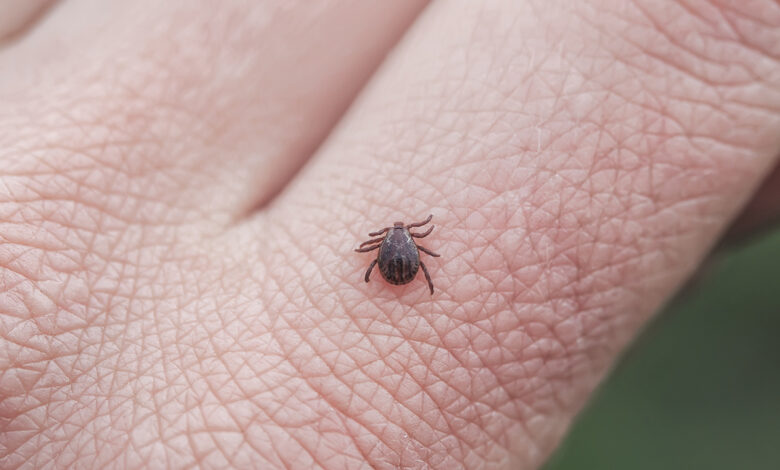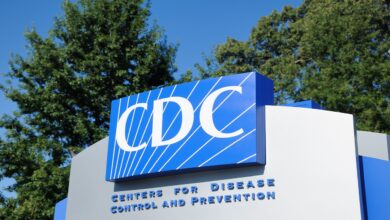Connecticut confirms 2 Powassan virus infections: What to know about tick-borne illness

Health officials in Connecticut announced the state’s first two cases of Powassan virus detected in 2021. The cases, which stem from an infected tick bite, involved patients between 50-79 years of age who fell ill during the third week of April and required hospitalization.
The patients, one from Fairfield County and one from New Haven County, were treated for central nervous system disease and have since been discharged and are recovering. The state reported just two cases last year, and 10 cases total spanning 2016-2020, two of which were fatal.
“The identification of two Connecticut residents with Powassan virus associated illness emphasizes the need to take actions to prevent tick bites while ticks are most active, from now through the late fall,” Deidre S. Gifford, MD., MPH, the state’s acting department of public health commissioner, said in a statement. “Using insect repellent, avoiding areas where ticks are likely, and checking carefully for ticks after being outside can reduce the chance of you or your children being infected with this virus.”
TICK BITES ON THE RISE: HOW TO STAY SAFE AS YOU HEAD OUTDOORS
Powassan virus is spread to people through the bite of an infected black-legged or ‘deer’ tick, and can take anywhere from one week to one month afterward to begin impacting the central nervous system. According to the Connecticut Department of Public Health, about one out of 10 cases of severe illness are fatal, and approximately half of all survivors experience long term health problems.
Severe cases may first present as fever, vomiting, headache and weakness before rapidly progressing to confusion, loss of coordination, difficulty speaking or seizures. There is no specific treatment, but supportive therapy is offered to those with severe illnesses.
While the virus is rare, the number of reported cases has increased in recent years. The Centers for Disease Control and Prevention (CDC) said most cases occur in the northeastern and Great Lakes region of the U.S. during the late spring and mid-fall, but since there is no vaccine and anyone can contract it, the best prevention is avoiding tick bites, the agency noted.
CLICK HERE FOR COMPLETE CORONAVIRUS COVERAGE
Tick prevention includes knowing where to expect ticks, such as in grassy, brushy or woody areas and treating clothing and gear before heading out. Using EPA-registered insect repellents, and walking in the center of the trails can also help keep you safe. Checking for ticks immediately after returning indoors by examining gear, pets, and yourself can help, as can showering soon after returning.
Source link




